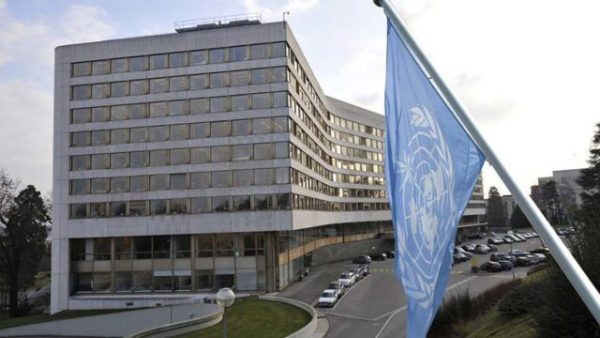Yuletide Triggers Consumables’ Smuggling As Capital Import Falls By 73%

- FOU Zone A seizes nine trailer loads of rice, 13 tokunbo cars
As the season’s rush and anxiety take tool on consumers this yuletide, Nigeria Customs Service(NCS) has waged a war against smuggling even as the aggregate capital import into the country has tumbled.
The Federal Operations Unit (FOU) Zone A of the Nigeria Customs Service(NCS),Ikeja, Lagos has intercepted 5,459 bags of 50kg bags of foreign bags of rice, equivalent of 9 trailer loads.
Meanwhile, Capital imported into Nigeria fell month-on-month (MoM) by 73 percent to $230 million in July 2023 from $390 million in June 2023.
Acting Controller of the unit, Hussein Kehinde Ejibunu at a press briefing on Tuesday revealed that the command anti-smuggling prowess also led to seizure of a Toyota Highlander with an ingenious concealment of suspected bags of foreign parboiled rice at Iju-Ojuore , Ogun State.
A breakdown of all the other seizures shows; 18,100 litres of premium motor spirit,376 bales of used clothes,1,926 cartons of frozen poultry products.
Others are; 337 pieces of used compressors, 3 X 40 ft containers found to contain 3,838 pieces of used tyres13 used vehicles (Tokunbo) and
396 cartons of frozen fish.

The customs boss said that the total duty paid value of the seized goods stood at N872,575,250, while a total of 11 suspects were arrested in connection with some of the suspects.
He said, “On revenue, the sum of N71,254,984.71 was generated through conscious and thorough documentary checks, followed by the issuance of demand notices on consignments that were found to have paid lesser amounts than the appropriate Customs duty.
“Smuggling operations that employ ingenious concealment methods can have a chance of successfully trafficking illegal goods across borders or checkpoints without being noticed.
“This calls for the collaborative efforts of all citizens to support the Service by providing useful and timely information that would aid the anti-smuggling drive.
“These seizures reflect our commitment to the discharge of our functions; aimed at protecting the nation’s economy and preventing the importation of prohibited and harmful products from entering our domestic markets” Ejibunu stated
However, the Central Bank of Nigeria, CBN, disclosed this in its Monthly Economic Report for July noting that the development occurred amidst rise in interest rates in advanced economies which made their markets attractive.
Similarly, capital outflow declined MoM by 67 percent to $220 million in July from $670 million in June.

According to CBN, this was partly due to lower loans, dividend repatriation, and capital reversal.
The apex bank also said that by nature of business, investment in financing had the highest contribution, accounting for 48 per of the total capital inflow during the period.
Giving further insight CBN said: “Analysis based on investment categories revealed that other investment capital, primarily in the form of loans and foreign direct investment as a percent of total, were 88.3, 8.0 and 3.7 per cent valued at $0.20 billion, $0.02 billion and $0.01 billion, respectively.
“By nature of business, investment in financing accounted for 48.1 percent of the total inflow, production/manufacturing, (31.2 percent);telecommunications,(8.7 percent);shares, (6.8 percent);banking (3.7 percent), and other sectors accounted for the balance(1.5 percent).
“By destination, the Federal Capital Territory and Lagos state were the main recipients of capital inflow, with shares of 63.8 and 36.2 per cent, respectively.”
On capital outflow from the economy, CBN said: “Capital outflow from the domestic economy declined significantly in July 2023, partly on account of lower loans, dividend repatriation, and capital reversal.
“In July 2023, capital outflow at $0.22 billion fell by 67.0 per cent, compared with $0.67 billion in the preceding month.

“Outflow in the form of loans declined to $0.12billion, from $0.33 billion in June 2023, while, outflow in the form of capital reversal declined to $0.08 billion from $0.15 billion.
“There was also a decline in repatriation of dividends to $0.02 billion, from $0.19 billion in the preceding month.
“Of the total capital outflow, loans accounted for 52.4 per cent, capital reversals; 37.4 per cent, dividends; 10.2 per cent, while others accounted for the balance.”







